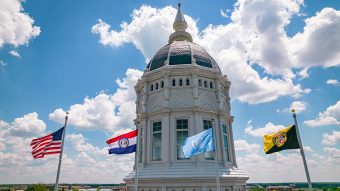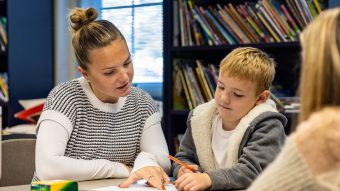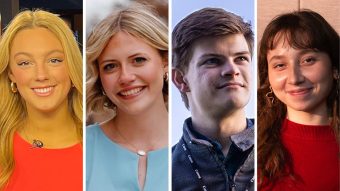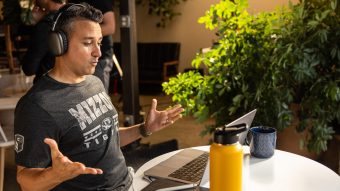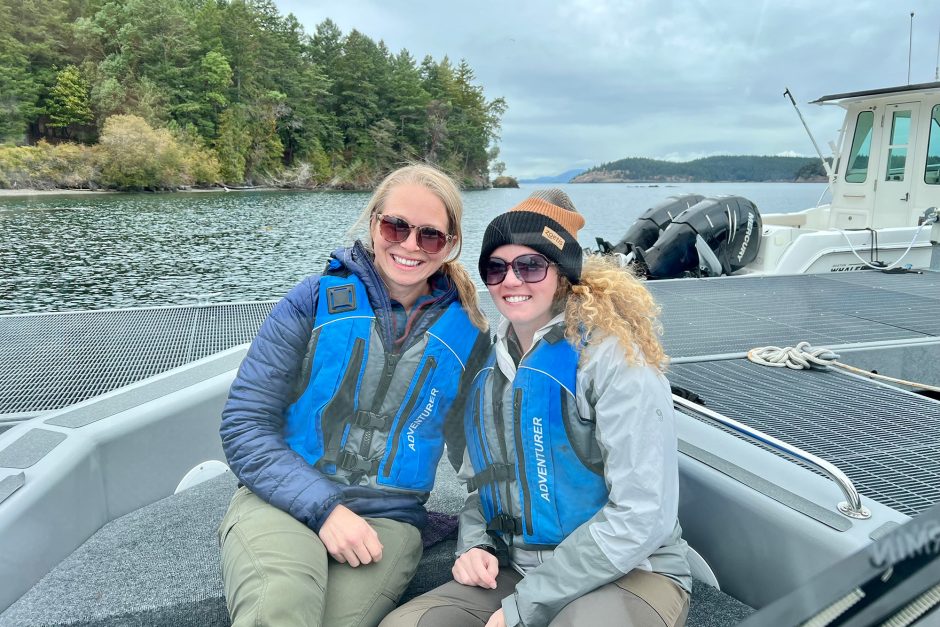
Sept. 13, 2024
Rachel Felton always knew she wanted to work with captive wild animals.
“I was that kid on family vacations who always requested to go to the zoo everywhere we went, and my family would finally give in, which I think really fueled my love of wildlife,” Felton said.
After graduating from Missouri State University, Felton participated in a fellowship in the San Diego Zoo Wildlife Alliance reproductive sciences lab. An internship and job at Dickerson Park Zoo during undergrad let her know she could do conservation research in a zoo setting. That’s when Felton turned to the University of Missouri to pursue a master’s degree in animal sciences.
During her course work at Mizzou, a job opened up at the San Diego lab, which Felton accepted without hesitation. Returning to the university to be a guest speaker in a Careers in Animal Sciences class, Felton met a student, Lindsey Fallon, who was so inspired by Felton’s story that she is now her coworker in the San Diego lab.
“I went into undergrad knowing that I wanted to work in wildlife conservation,” Fallon said. “Throughout my first year at Mizzou, I believed that I wanted to go into zookeeping, but I also hadn’t ruled out veterinary medicine as an option, as I was currently working as a vet tech at the time. It wasn’t until I continued taking a variety of animal sciences classes at Mizzou that I realized I could even do research for conservation as a career.”
Hearing Felton speak to her Captive Wildlife Animal Management class inspired Fallon to pursue a conservation science career, and she worked with advisors Trista Strauch and Mike Smith to shadow in the San Diego lab for a week. Fallon was later selected for the San Diego Zoo fellowship, but had to complete her fellowship during her graduate studies because the COVID-19 pandemic
And, as the conservation pipeline would have it, Fallon later spoke to the same class, inspiring their current intern, Taylor VanDeVoorde, a junior animal sciences student, to apply for the fellowship.
Together this team of Mizzou alumni work to measure hormones in fecal samples of zoo animals including exotic cats, rhinos and echidnas, to monitor their cycles and pregnancy. The team is currently researching how captive diets affect fertility in exotic cat populations, allowing VanDeVoorde to dip her toe into research as an undergraduate student.
While Fallon, Felton and VanDeVoorde learned technical lab skills during their time at Mizzou, they all credit their career success in part to the networking skills they learned and to Trista Strauch, an advisor in the captive wild animal management emphasis.
“One thing that helped me in my career development was learning how to reach out to people who are at a much higher level in their career than I am, get to know them and let them know my level of interest in their fields,” Fallon said. “If I didn’t learn that skill at Mizzou, I wouldn’t have the job I have now.”
While many animal sciences students go on to vet school, Felton and Fallon encourage students to get creative about how to use their animal sciences degrees.
“Think outside the box,” Felton said. “Everything that we learned in animal science can be applied to an okapi, or a rhino or a tortoise. Don’t be afraid to be different in the careers you pursue.”
Read more from the College of Agriculture, Food and Natural Resources